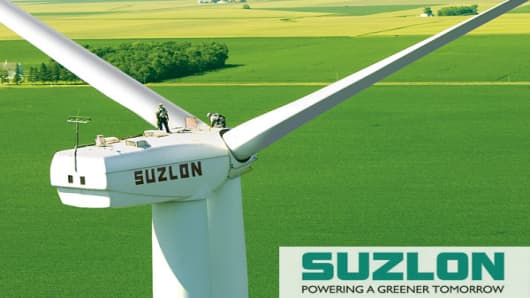The world's fifth-largest wind-turbine supplier, Suzlon Energy, expects India's budget next week to reinstate incentives aimed at encouraging businesses to invest in more wind power, helping India cut its reliance on costlier fossil fuel.
Suzlon Chairman Tulsi Tanti told CNBC Asia's "Squawk Box" that he is "100 percent confident" the industry-recommended generation-based incentives scrapped last year will be brought back in the February 28 budget, predicting more investment will come to India as a result.
(Read More: India's December Industrial Output Contracts 0.6%)
Under the generation-based incentives (GBI) scheme companies received a financial incentive per unit of electricity they generate.
Tanti said the government's budget may also include the so-called accelerated depreciation (AD), scheme where a company gets to write off 80 percent of the project value in the first year as depreciation, reducing their tax payout.
"In principle, the government is interested," he said.
(Read More: India's 2013/14 Budget to Be Most Austere in Years)
The GBI scheme is "critical" in attracting Independent Power Producers (IPPs), "who can pump much-needed finance in to the system," Tanti wrote in an opinion piece published in The Hindu Business Line newspaper on January 30.
Suzlon - India's largest wind-turbine maker - needs a pickup in orders in key markets like India and the U.S. to help improve revenue after reporting a wider-than-expected loss in the quarter ended December, its fifth straight quarter of losses, as it paid down debt.
(Read More: India Central bank Chief Warns on record Current Account Gap)
The renewable energy industry has blamed the government's scrapping of incentive schemes for a sharp drop in wind power capacity additions in 2012.
"A sector that saw spectacular growth over the past decade has slowed down significantly over the last year," Tanti wrote in the January opinion piece. "In the first half of the year, the industry recorded close to a 40 percent dip in its installations. This is a stark reflection on reforms that have perhaps lost their momentum."





